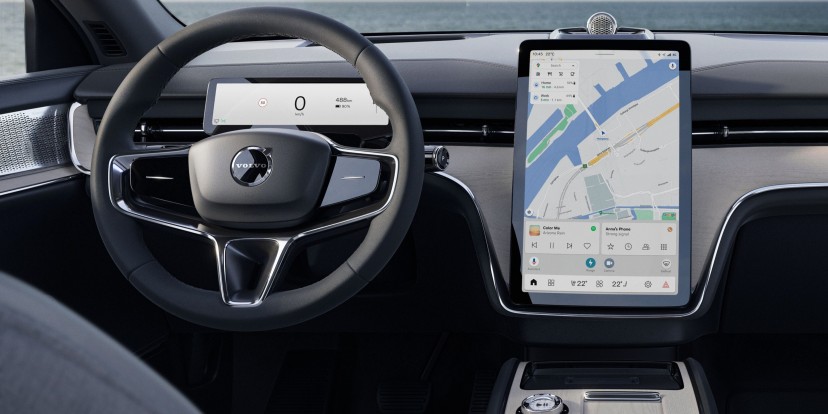Volvo aims to modernize its in-car technology through an enhanced partnership with Google. This collaboration allows Volvo to lead the development of Google’s Android automotive software, promising more rapid updates and features compared to competitors. With the Volvo EX90 showcasing Android 15 at a recent event, new models will benefit from the latest software, bridging the tech gap between cars and smartphones. Additionally, the integration of Google’s Gemini AI will enhance in-car assistance, making the vehicle a smarter co-pilot for users. This tech evolution positions Volvo favorably in the competitive electric vehicle market.
Many car owners share a common complaint: the technology in their dashboards seems outdated compared to their sleek smartphones. While your phone receives exciting new features every few months, your car’s system often feels trapped in a technological time warp. However, Swedish automaker Volvo is aiming to change that narrative by collaborating more closely with tech giant Google, ensuring that drivers are not left using outdated technology, particularly in its new electric vehicles.
Volvo and Google, partners for around a decade, have announced an expanded collaboration. This partnership goes beyond merely integrating Google Maps into vehicle dashboards. Volvo is now the primary development partner for Google’s Android automotive software. Alwin Bakkenes, who leads global software engineering at Volvo, stated that this new agreement will enable Volvo to “quickly introduce new capabilities, features, and experiences for our customers.” He believes this gives Volvo “a significant advantage in delivering outstanding customer experiences.” In a market where EVs are frequently evaluated based on their technology, this could be a substantial benefit.
What does this mean for prospective Volvo buyers? Currently, Volvo cars utilize a system based on Android 13. However, at Google’s recent developer conference, the two companies demonstrated Volvo’s flagship electric SUV, the Volvo EX90, operating on Android 15. This is the latest version of Google’s operating system, the same one powering numerous new smartphones.
This upgraded system is set to appear in Volvo’s production models later this year. Bakkenes emphasized a significant advantage: “Others may have to wait two years to access that latest version of Android.” He noted that, on average, the automotive industry lags about two Android releases behind mobile devices. This delay results in features available on smartphones often being unavailable in cars. Volvo is poised to bridge this gap quickly.

In contemporary electric vehicles, the software is as crucial as batteries and motors. It governs everything from entertainment and navigation to battery management. Having the most current software results in a smoother, more intuitive experience for drivers, better applications, enhanced voice controls, and even upgraded safety features.
The intensified collaboration means Google engineers will test their latest innovations directly in Volvo vehicles, experiencing “how their product behaves in a real environment much earlier and much faster,” according to Bakkenes. This practical approach is expected to result in software better suited to the driving context.

Beyond just the operating system, Volvo plans to incorporate Google’s Gemini AI into vehicles that already feature Google integration. This evolution goes beyond merely requesting your car to play a song or locate the nearest café. Gemini aims to serve as a more intelligent and supportive co-pilot. Bakkenes provided an example: instead of a driver searching their phone for an address, they could simply ask Gemini to check their emails or messages for it. That’s a practical capability.
The introduction of Gemini is expected to foster what Bakkenes describes as “a human-centric experience.” This higher level of assistance could streamline routine errands and road trips significantly. The goal is to transform the car into an intelligent partner that understands and anticipates your needs, moving past simple commands to complex problem-solving and support.
As electric vehicles increasingly evolve into sophisticated electronic devices on wheels, partnerships like that between Volvo and Google will likely be pivotal in defining what makes for an exceptional car in the future, potentially leaving less tech-savvy competitors pondering if they missed a crucial shift.
Source
